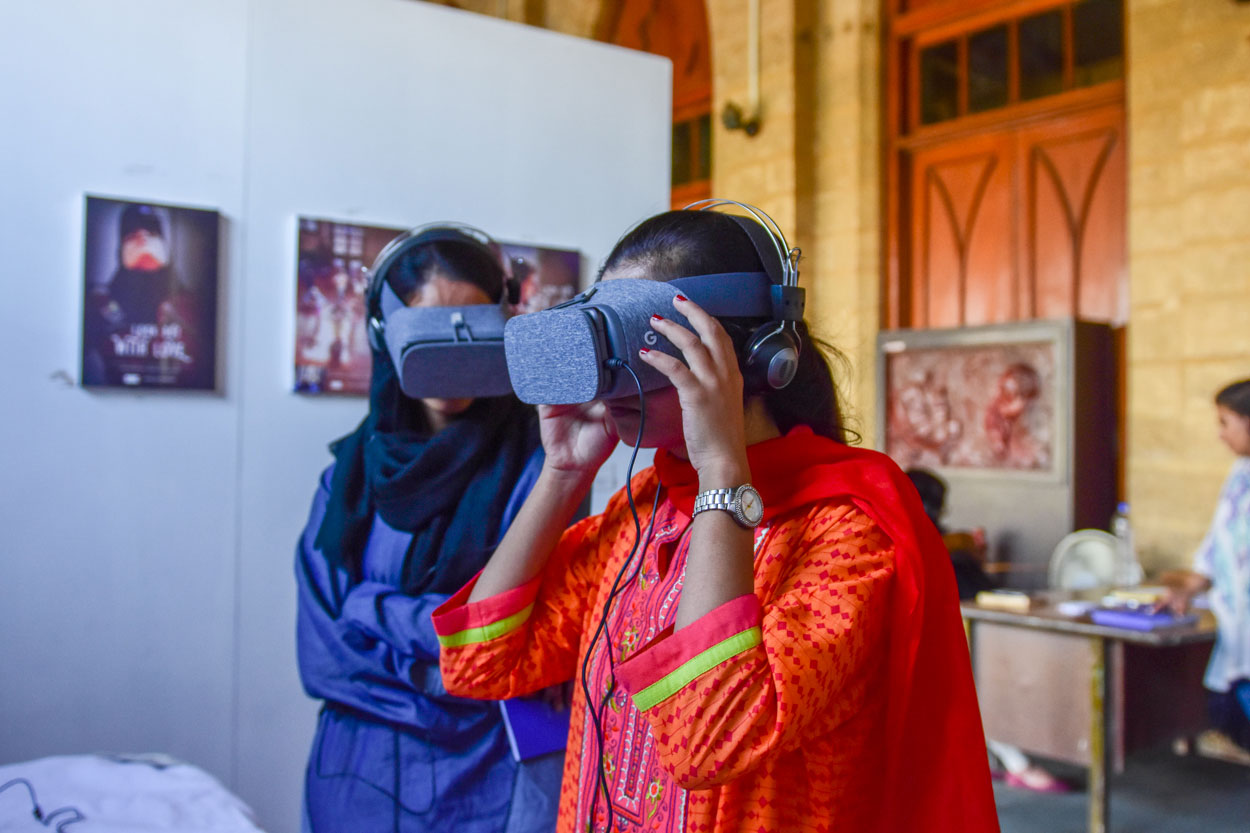Sharmeen Obaid Chinoy
Born in 1978 in Karachi (Pakistan)
Lives and works in Karachi (Pakistan)
Sharmeen Obaid Chinoy is a two-time Academy Award and Emmy Award winning documentary filmmaker. In the past 16 years, she has made a dozen multi-award winning films in over 10 countries around the world. Her films include Girl in the River, Song of Lahore, Saving Face, Peace Keepers, Transgenders: Pakistan’s Open Secret and Pakistan’s Taliban Generation. Her work has aired on channels spanning four continents including HBO, CNN, PBS, Channel 4, CBC, Arte, SBS and the Discovery channel. In 2012, Time Magazine included Sharmeen in their annual list of the 100 most influential people in the world. That same year the Pakistan Government awarded her with highest civil honor “Hilal -e–Imtiaz”. In 2013, the Canadian government awarded her a Queen Elizabeth II Diamond Jubilee Medal for her work in the field of documentary films and the World Economic Forum honoured her with a Crystal Award at their annual summit in Davos. In 2017, Sharmeen was the first artist ever to co-chair the “World Economic Forum” at Davos. Born and raised in Karachi, Pakistan, Sharmeen received a Bachelor’s degree from Smith College and two Masters’ degrees from Stanford University.
Sharmeen Obaid has submitted five VR films for KB17. Virtual Reality (VR) technology is the computer generated simulation of the three-dimensional that can be interacted with in seemingly real and physical ways via specialized electronic equipment such as goggles and helmets fitted with sensors. With the launch of its newest project, Look but with Love, SOC Films is the first to bring VR technology to Pakistan. Look but with Love is a series of short films designed to promote the rich cultural history of Pakistan, champion the empowerment of women and children and evoke a sense of social responsibility and consciousness. With VR technology at their center, the films will have an immediate and sensory effect on the audience, challenging them to observe and, most importantly, question the world around them. Through these films, the audience will be exposed to the rich musical history of Sindh’s Jamshoro, the women fighters of KPK’s Nowshera, the plight of sick children in Karachi hospitals and the beautiful and often unexplored deserts of Thar.

Look but with Love, 2017.
Five VR Films, 2k. Sphere 360, plays on mobile phones with a headset
Produced by SOC Films in collaboration with WITHIN & HERE BE DRAGONS

